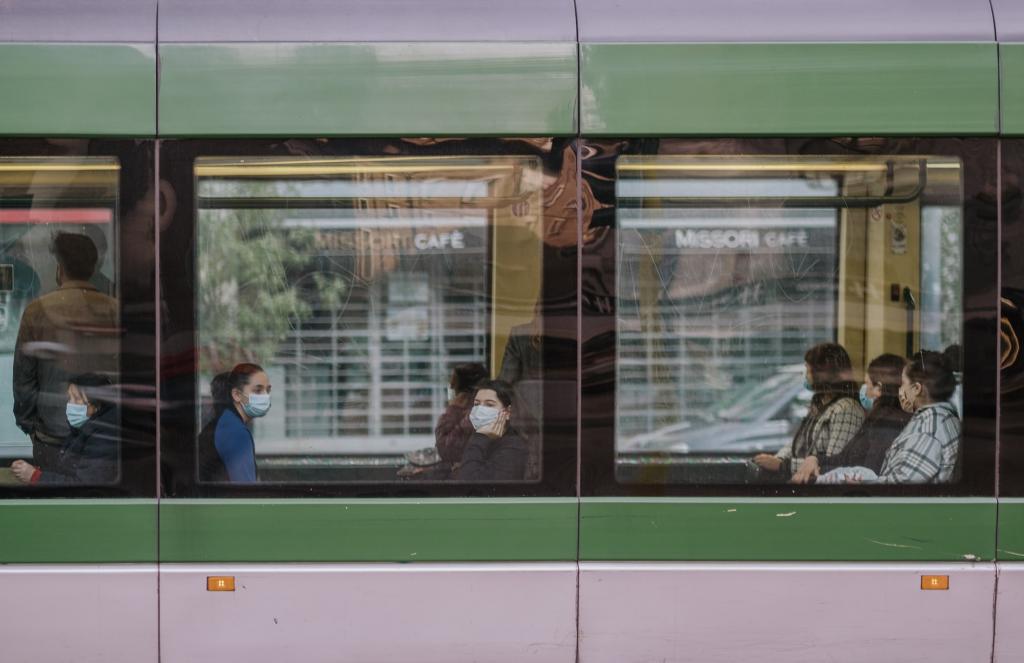Thessaloniki gets ready for its metro launch in November
The underground rapid transit lines have been under construction for almost two decades due to various project delays
 TheMayor.EU logo
TheMayor.EU logo 
Researchers point that there are likely other compounding factors like work-type, health conditions and education
The major disparity is a problem for healthcare services that needs to be addressed
Yesterday, the Luxembourgish Minister of Health, Paulette Lenert, gave a press conference on a recently published study titled ‘The Social Gradient of the Pandemic’. The study was conducted by Statec, the Luxembourgish public statistical agency and the Luxembourg Institute of Socio-Economic Research.
One of the main findings of the study was that the COVID-19 pandemic had a greater impact on the economically disadvantaged. Furthermore, the study found out that country of origin had an impact on vaccine willingness as well.
Researchers also point out that there are correlations and they should not be interpreted as causes. Furthermore, there are likely to be a number of compounding factors, such as work-type, education and healthcare factors like diabetes and obesity. At the same time, housing size and an inability to self-isolate at home are also among the factors that could influence the results.
Minister Lenert was quoted by L’essentiel, explaining that the study revealed inequalities in the Grand Duchy’s otherwise ‘accessible’ healthcare system.
She also explained that they must be taken seriously from the perspective of health authorities and that health education in schools could be a key factor in bettering the situation in the future.
According to the study, households earning less than 25,000 euros per year had a likelihood of 15% to suffer a Covid-infection. At the same time, with those earning 60,000 or more, the number was 12%. However, when it comes to countries of origin, researchers found quite a large disparity.
According to the data, those born in ex-Yugoslavian countries like Croatia, Serbia and etc had a likelihood of suffering an infection of more than 20%. For comparison, households with a German background had a likelihood of just under 10%.
Moreover, hospitalisation rates paint a similar picture. Out of all the people who have had a Covid-infection, those earning below 25,000 euros were the most likely to be hospitalised, at around 0.2%. On the other hand, people earning above 60,000 euros had a chance of around 0.1% to end up in a hospital.
Looking at the country of birth data, ex-Yugoslavians were worst off again, with a rate of 0.33%. On the other side of the spectrum, the Portuguese were the least likely to end up in a hospital, with a rate of around 0.21%.
Households from the former Yugoslavian countries were also the least likely to get the vaccine, and the same goes for those earning less than 25,000 euros per year.

The underground rapid transit lines have been under construction for almost two decades due to various project delays

Now you can get your wine in Talence by paying directly in Bitcoin

That’s because the state has to spend money on updating the railway infrastructure rather than subsidizing the cost of the popular pass

Rethinking renewable energy sources for the urban landscape

The examples, compiled by Beyond Fossil Fuels, can inform and inspire communities and entrepreneurs that still feel trepidation at the prospect of energy transition

Now you can get your wine in Talence by paying directly in Bitcoin

The 10th European Conference on Sustainable Cities and Towns (ESCT) sets the stage for stronger cooperation between the EU, national and local level to fast track Europe's transition to climate neutrality.

At least, that’s the promise made by the mayor of Paris, Anne Hidalgo

The underground rapid transit lines have been under construction for almost two decades due to various project delays

At least, that’s the promise made by the mayor of Paris, Anne Hidalgo

Hostal de Pinós is located in the geographical centre of the autonomous region

Despite its church-y name, the district has long been known as the hangout spot for the artsy crowds

Urban dwellers across the EU are having a say in making their surroundings friendlier to people and the environment.

Forests in the EU can help green the European construction industry and bolster a continent-wide push for architectural improvements.

Apply by 10 November and do your part for the transformation of European public spaces

An interview with the Mayor of a Polish city that seeks to reinvent itself

An interview with the newly elected ICLEI President and Mayor of Malmö

A conversation with the Mayor of Lisbon about the spirit and dimensions of innovation present in the Portuguese capital














